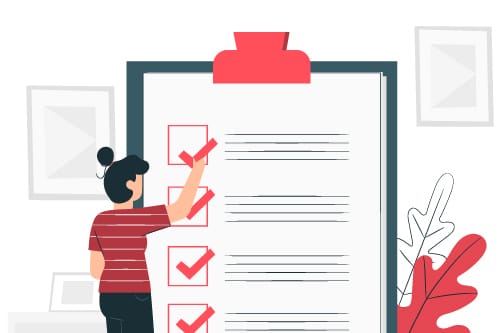How to Control Your Anger Before it Controls You?
Summary

Anger affects our mood on a day-to-day basis. It is often associated with one’s personality. The by-product of anger is typically guilt and sadness. In this blog, we explore the possible reasons as to why do we get angry? What causes it and how to cope with it. You can find helpful tips and techniques to cope with anger.
Introduction
According to the American Psychological Association, Anger is defined as “an emotion characterized by tension and hostility arising from frustration, real or imagined injury by another, or perceived injustice.” Anger is an emotion that we are familiar with right from our infancy. It is also associated with a lot of attention seeking behavior. It is often mirrored with feelings of suppression and inadequacy.
In India, a staggering statistic of eighty percent of youth is “Angry”. This was a study conducted by Bangalore Mirror. The primary reason for a spike in aggression was due to lack of love and care from peers and family members. So this boils down to asking ourselves several questions such as, why do we get angry? What causes it and how do we cope and manage it?
Why do we get angry?

Anger usually is the fire that sparks the brain when it is short-circuited. Since this is a primitive emotion that we have met with, it also acts as our instinct to flight off any danger or threat. We are subconsciously in “Karate Mode” in order to be well-prepared and equipped to handle any situation. The science behind anger is that our brain has a direct impact when we are angry. As we become angry, our body muscles tense up and a neurotransmitter called catecholamines causes a sudden burst of energy that extends to several minutes. It also accelerates the heart rate, raises the blood pressure, and your body gets heated instantly.
How does anger affect our thinking ability?

Anger has a tremendous influence in how we estimate risks of life. Studies have shown that it can make us more impulsive and make us underestimate the chances of negative outcomes. Anger is congruent in either making us reckless or brave. Anger also influences our thinking in our peer circle. The moment we get angry at someone we tend to think negatively about them and it also results in an uncontrollable spiral that eventually turns into rage.
Can anger do us any good?

A social Psychologist, Larissa Tidens worked exclusively on the positive facets of anger and has stated in her books that anger is definitely conditioned into a “Thriving factor” for anybody who wishes to clap back at criticism. It can also be used as a positive enabler to mitigate sadness and channelise that into anger so that mental illness like depression and anxiety can be combated with.
Who is more angry? Men or Women?
:max_bytes(150000):strip_icc()/__opt__aboutcom__coeus__resources__content_migration__mnn__images__2019__03__man-woman-fight-angry-50c328b056e04e1b9de0275dc4352790.jpg)
This has definitely been a very curious topic of research among psychologists. However, the results are inconclusive because Men appear to be more aggressive and resort to showing it outward. Whereas women experience anger frequently and the intensity of anger is similar to what men experience. The only difference between the two was that women were able to control anger much more effectively. This is not just a biological difference but has to do a lot with social conditioning too.
Anger and Mental Health
Chronic Mental Health such as Frontotemporal dementia and Alzheimer’s have known to manifest anger and aggressiveness, thereby making them extremely impulsive. It is also important for us to understand that how we process anger contributes to our well-being. Addressing the warning signs such as persistent irritation, lashing out at loved ones, the constant rage among peers, or while driving. The sooner these symptoms are realized, the faster they can be treated. A skilled psychologist can help in planning CBT (cognitive behavioral therapy) interventions to treat the same.
How to Cope with Anger?
#1 Acknowledge, acknowledge and acknowledge

Half of the problem gets resolved when we accept it. Bringing awareness to working on a problem helps our mind to find solutions to work on. So the first step is to manage our anger to realize it.
#2 Use a Hostility log
Keeping track of:
1. What made you angry?
2. How did we respond to this?
3. Was the action justified?
This will allow us to keep track of our triggers, and it is thereby very easy to plan and strategy/goals to get started.
#3 Assessment

After you have acknowledged the issue, it is wise to assess the intensity of anger, and if this intensity impairs your day to day functioning, this can be done by undertaking standardised assessments.
#4 Interrupt your anger cycle
If you need to break the anger instantly, then you can first pause for a moment and then take deep breaths, channelise your inner dialogue and affirm yourself that you can handle this situation lastly, place yourselves out of the situation and come back to it after you have calmed down.
#5 Talk to a friend

If there is anybody who has a calming effect on you, then reach out to them as this would be far more effective than breaking things in your vicinity. Venting out to a friend will give that instant validation you need and also allow you to calm down.
#6 Get moving

When there is a rush of anger, it is better to put that surge into good physical activity. Regular exercise can help you destress and decompress. Whether it is a brisk walk or working out, do it regularly and you will notice how irrational anger and rage is translated to meaningful assertiveness.
#7 Focus on relaxation

Some popularly known exercises to reduce anger are Progressive Muscle relaxation technique and breathing exercises. It is imperative to create mental health hygiene, talk to trained professionals on how to use the technique.
There are no shortcuts in dealing with anger, what is important is to take the first step to bettering it. Managing anger may be the end goal, but being aware of the problem is the most important first step to take. There is no shying away from wanting to talk to a professional because only he/she can truly address the underlying cause of anger. A CBT trained professional can help plan an integrated intervention to keep your anger at bay.
Frequently Asked Questions (FAQs)
Q. Can anger cause strain in relationships?
A. Chronic anger often results in name calling and lashing out at a loved one. Addressing this quickly will help in mitigating the damage caused. Once you start working on yourself, you will see an incremental increase in quality of your relationships.Q. How can I stay committed to changing this, as it is so common in our daily lives?
A. Addressing the macro vision of why you want to do this in the first place will help you stay motivated and committed.Q. How do I control my anger instantly?
A. Nothing can change overnight, but a consistent effort will help improve this and make you feel good about yourself.







